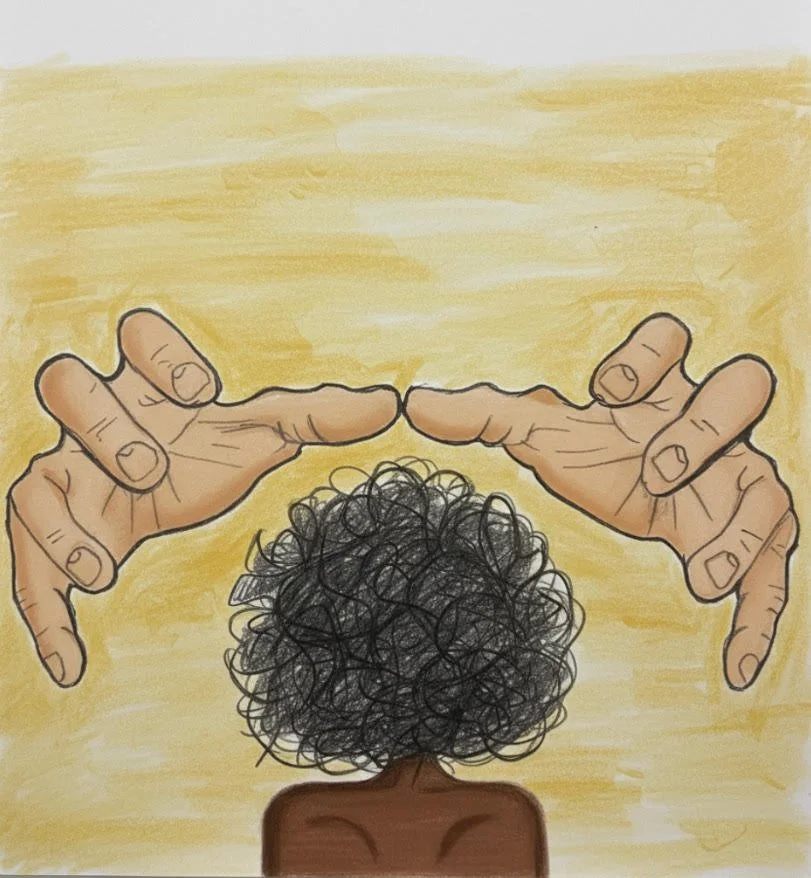Black Hair and Culture
Article By: Orsi Brown / Graphic By: Adriel Malaca
Black people have truly dominated the world of hair styling for centuries. We’re known for our intricate styling, diverse curl patterns, beauty, and it is clear how much Black people have influenced other cultures, too.
For most of us, our hair is part of our identity. We own timeless styles that have been used for protection and survival for years on end, but the dedication of time, effort, and money is often unseen. A token hairstyle for Black women are box braids, which, on average, take 3-9 hours and cost upwards of at least $200 every 2 months. Although financially taxing, it is styles like these, cornrows, and twists that allow us to not spend hours on our hair every morning.
The cultural significance of our hairstyles go unseen, too. 2 years ago, a White peer held my hair and told me she wanted to be Black when she was young so she could have braids, and that she always got them on vacations. Black people are susceptible to blatant ignorance, appropriation, and disrespect just based on their hair. It is known that we “face barriers to opportunities to employment and education due to stereotypes that mark [us] as improper or unsuitable due to [our] hairstyles”. And people laugh when they hear “my culture is not your costume”, until it’s learned that cornrows were braided in codes that helped slaves escape, and that braids are built and used to protect a very unique curl pattern and hair type. Certain Black hair styles were and still are worn out of necessity.
“Why not just go natural?”
The time and dedication it takes to care for natural Black hair matches, if not exceeds the time for other protective hairstyles. For example, wearing my hair naturally in a way that isn't seen as almost sloppy and careless takes me an hour of twisting every night and 30 minutes of unraveling every morning. This paired with school, work, and life is sometimes taxing. Countless amounts of Black women and girls, including me, have been made to feel uncomfortable with only wearing their natural hair. I take pride in my hair, but it should not cause negative impacts in mine and other girls’ lives. I take pride in my hair- this is not a complaint about the time and costs and the hard work it takes to care for Black hair. It is for this reason that I am so proud.
When I hear “Black is Beautiful”, of the resurgence of the natural hair movement of the 1960s, and see others flaunt their hair, I’m given a reminder of why something anyone else would think is a mundane task, is so important and valuable to me. The depth of Black culture and hair is endless.
But another challenge faced in this aspect is appropriation. It’s no secret the amount of times other cultures have taken (maybe too much) inspiration from Black hair. It was only 7 years ago when Kim Kardashian wore cornrows to an awards event, and it’s easy to find countless celebrities who have worn Black-specifc hairstyles, especially in the 2000s. Today, East-Asian cultures are found using perms that turn their hair into kinky 4c curls. These are all for aesthetic purposes, and it only shows the lack of sensitivity when it comes to exploring other cultures.
I hope the strength and influence of Black culture inspires other communities to also love who they are and represent. Racism, appropriation, and discrimination will never be enough to weaken the strength of Black culture and its connection to hair. Our roots in hair care and styling expand throughout each century, and will evidently continue to do so.
Cited work:
